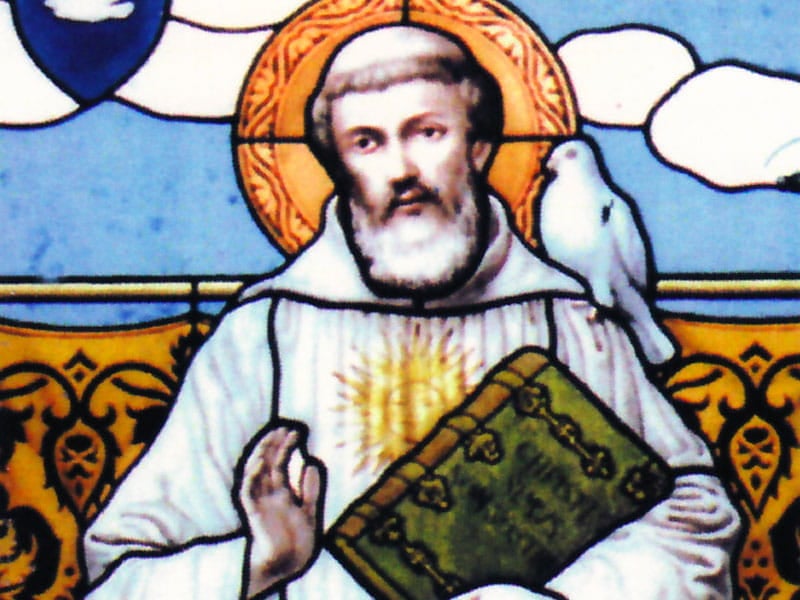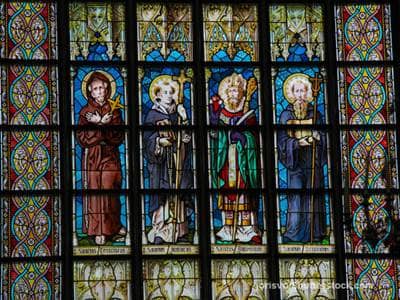St. Columban (543?-615)

Columban was the greatest of the Irish missionaries who worked on the European continent. As a young man he was greatly tormented by temptations of the flesh, and sought the advice of a religious woman who had lived a hermit’s life for years. He saw in her answer a call to leave the world. He went first to a monk on an island in Lough Erne, then to the great monastic seat of learning at Bangor.
After many years of seclusion and prayer, he traveled to Gaul with 12 companion missionaries. They won wide respect for the rigor of their discipline, their preaching, and their commitment to charity and religious life in a time characterized by clerical slackness and civil strife. Columban established several monasteries in Europe which became centers of religion and culture.
Like all saints, he met opposition. Ultimately he had to appeal to the pope against complaints of Frankish bishops, for vindication of his orthodoxy and approval of Irish customs. He reproved the king for his licentious life, insisting that he marry. Since this threatened the power of the queen mother, Columban was ordered deported back to Ireland. His ship ran aground in a storm, and he continued his work in Europe, ultimately arriving in Italy, where he found favor with the king of the Lombards. In his last years he established the famous monastery of Bobbio, where he died. His writings include a treatise on penance and against Arianism, sermons, poetry and his monastic rule.
-
Sts. John Jones and John Wall (c. 1530-1598; 1620-1679)
-
St. John Francis Regis (1597-1640)
-
Servant of God Francis Garces and Companions (c. 1781)
-
St. Adalbert of Prague (956-97)
-
Blessed Emmanuel Ruiz and Companions (1804-1860)
-
St. Thomas the Apostle
-
Blessed John Francis Burte and Companions (d. 1792; d. 1794)
-
St. Gregory Grassi and Companions (d. 1900)
-
Blessed Adolph Kolping (1813-1865)
-
Our Lady of Mount Carmel


